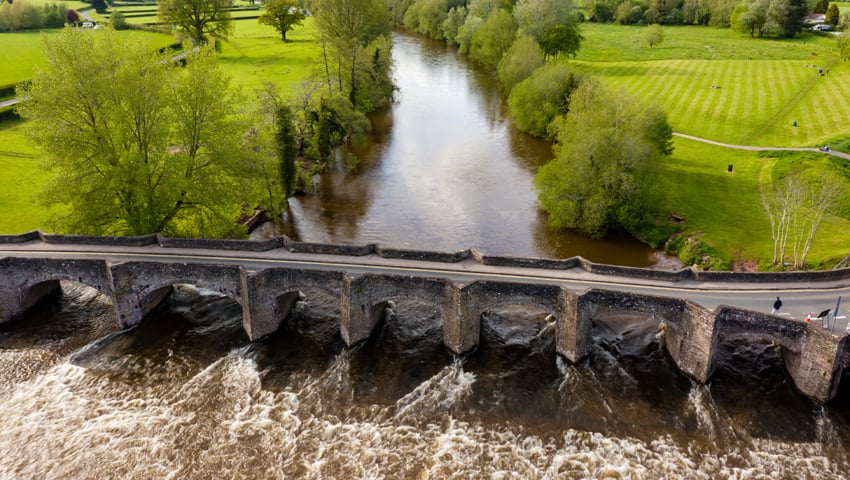WELSH Water’s Catchment Team and Beacons Water Group are piloting new ways of managing water that will build productivity, protect nature, reduce nutrient use and ease flooding.
“We’re trying to pilot a new way of working – an approach modelled on an international example in the Catskills, USA, where they’ve been successfully controlling water quality through catchment management for the last 30 odd years,” says Nigel Elgar, Brecon Beacons Mega Catchment Project Manager.
“Engagement in the past has tended to be, we pay farmers a sum of money to deliver a certain output. At the end of that funding period we have no mindset change, we’ve got no sustainability. This is about empowering the farmer and land user, giving them the opportunity to improve the outcomes they want to see for their business or their interests but also deliver for water quality as well.”
A new short film, produced by Welsh Water and the Brecons Water Group, showcases the work of five farmers in the region.
Richard Roderick from Newton Farm, Screthrog says “The River Usk is quite a challenge to us as far as managing floodplain grasslands – we’ve got quite a few kilometres that run with the Usk and flooding is very challenging. One of the main reasons we’re trying to protect the riverbank is to try and hold onto our soils and stop the soils and the bank eroding into the river – we’re basically losing land, so the more stabilisation we can get in the banks, the better for us.”
Roderick is also trialling no-fence collars to create a virtual fence line for his cattle, keeping them off the bank to protect the river and stopping them straying to neighbouring farms.
Alan Thomas farms at Upper Pendre Farm, Llangorse and has been impressed by LiDAR mapping provided by Welsh Water. “The information we received when we were first shown the maps was just like – Wow! – This is amazing, because it was so accurate. We’ve farmed here for three generations, we’ve known what happens in the bad weather, but it’s just the information we gained with LiDAR means we can do a little bit extra away from this field and the problem can be virtually eliminated.”
Keri Davies from Glwydcaenewydd Farm, Crai is also making good use of new technology. A weather station on his land is providing live data from soil sensors and ground temperature probes as well as information about prevailing weather conditions. “This gives us the evidence to make sure that we are putting the nutrients on at a time where the ground can accept them, and the plant can use the nutrients – so it’s effectively saving us money because we’re getting better use of the resources.”
As part of the project, farmers have also been using European Innovation Partnership funding to assess greenhouse gas emissions and carbon sequestration from trees, hedges and soils. This helps to determine the carbon balance of participating farm businesses, both collectively and individually.
Hugh Martineau from Treberfydd Farm, Llangorse says “Farmers have got to take control of the narrative – they’ve got to be providing an evidence base which translates through the supply chain to the consumer so I think that’s the big opportunity here, to make sure that we’ve got something that is evidence based, that can tell that positive story – that shows that we are producing lower emissions food, that we are doing that in an environmentally sympathetic way and that we’re adding to the value of the environment around here.”
David Thomas from Penwern Farm sums up the project. “We live in a special place really and we’re grateful for that, but I think it’s important that we actually accept the risks that we perhaps posed to the environment and do what we can to reduce those risks – graze from uphill, have a water supply in the right place – it’s going to be better for the farm, for our soil going forward.”
He says that the involvement of Welsh Water has been very important. “Without that facilitation, I don’t think we’d be meeting and doing things as proactively as we are.”
